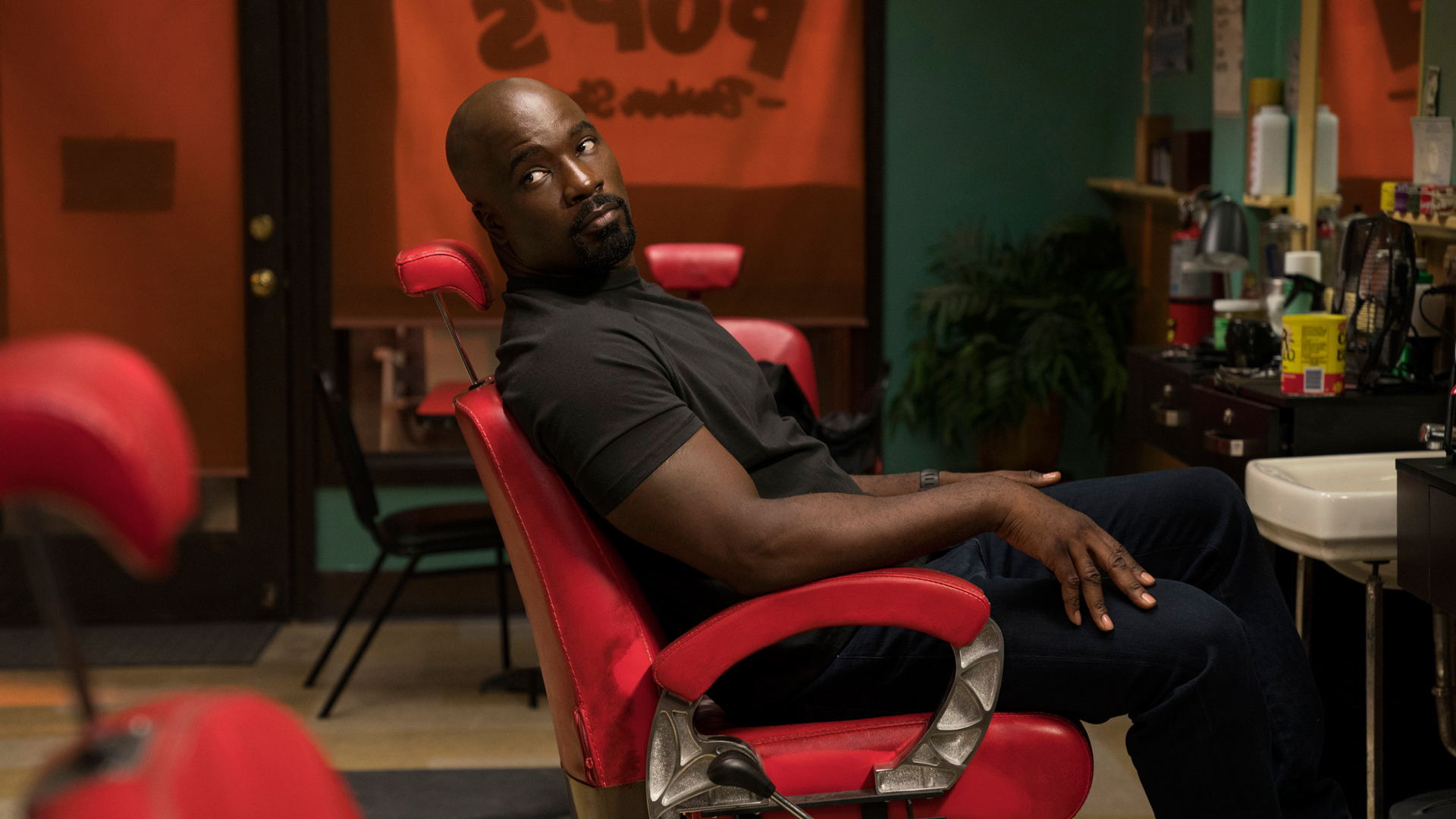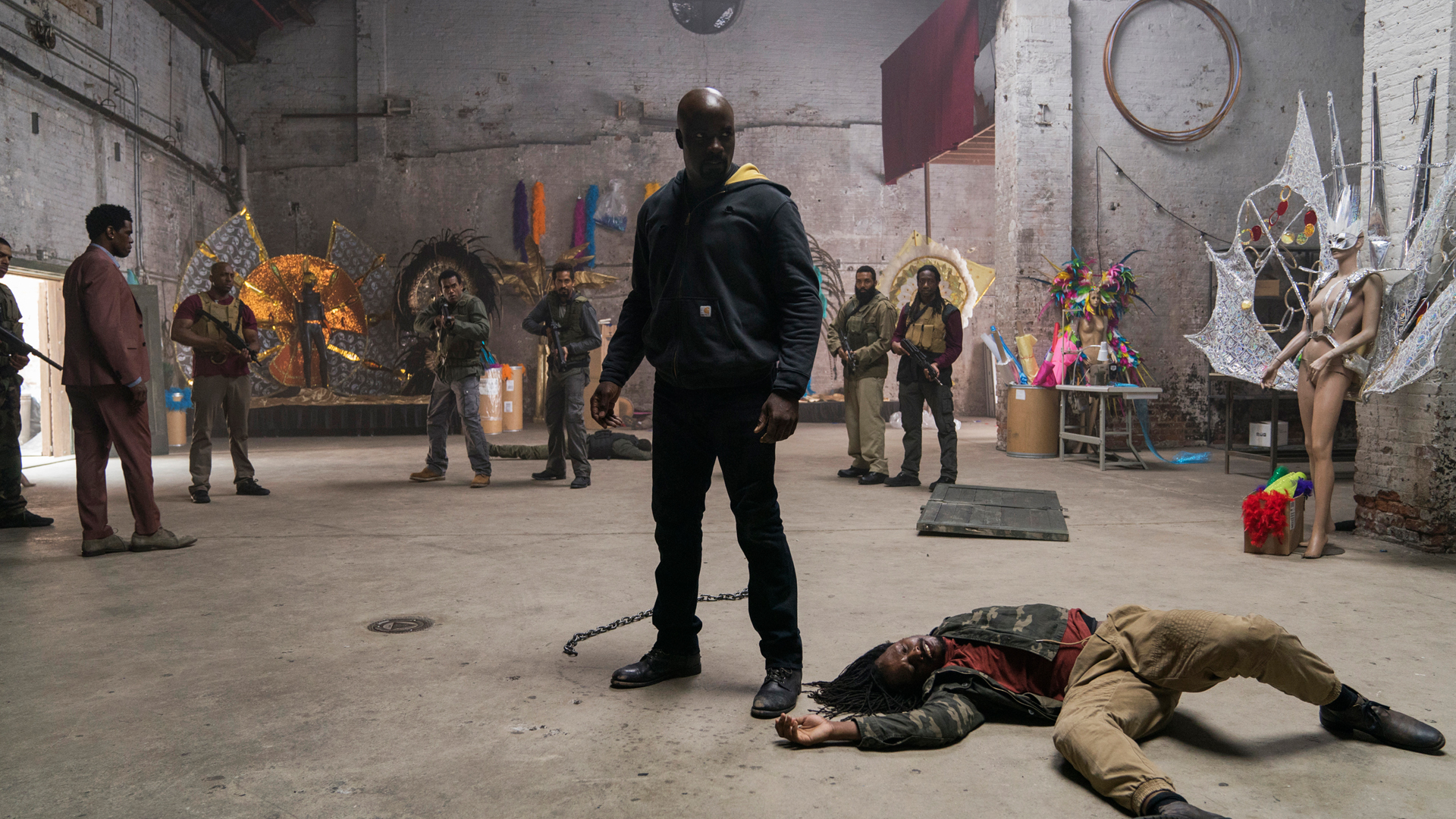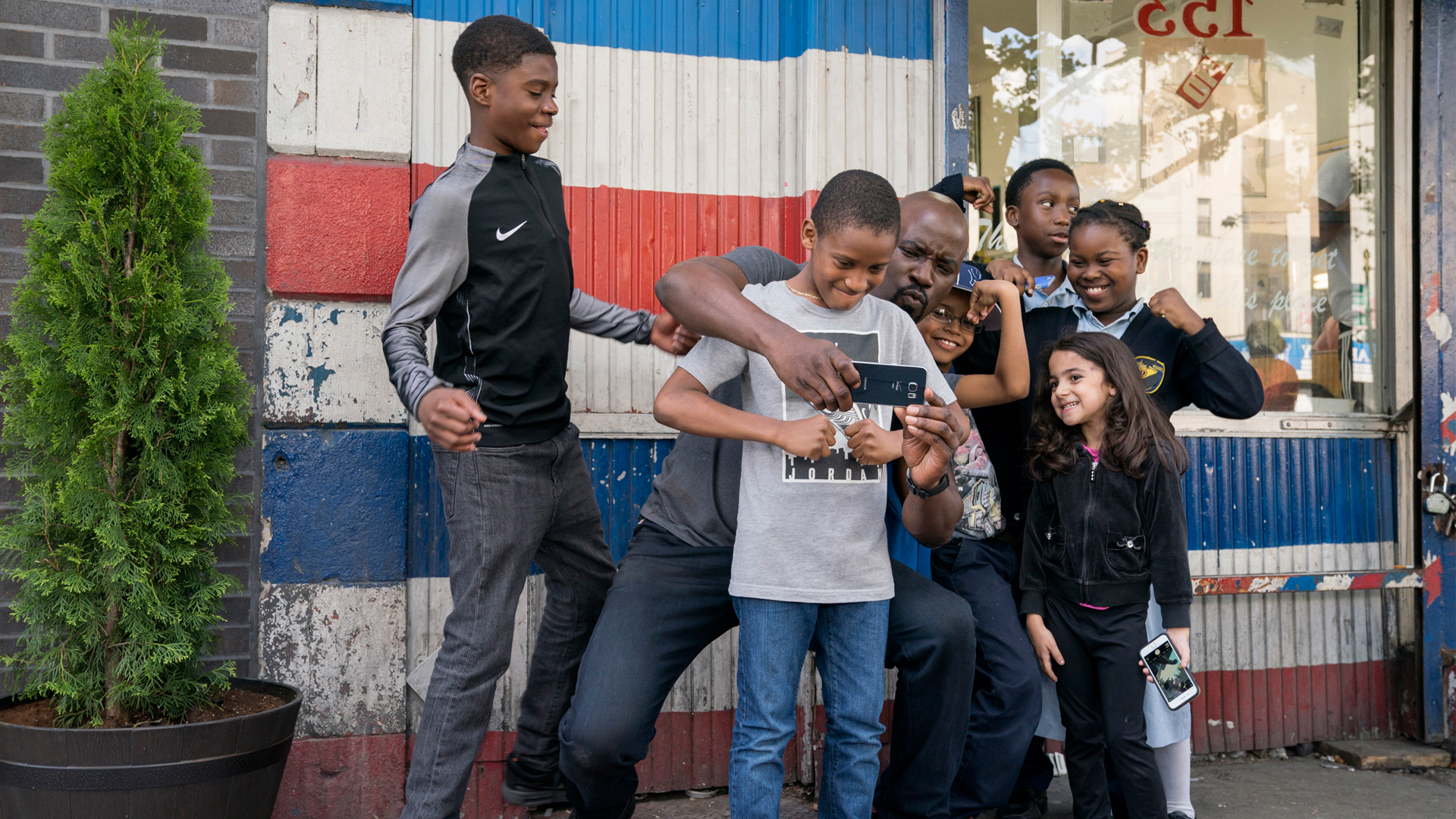Luke Cage season 2 aims to show that our hero is vulnerable on the inside, even if he’s bulletproof on the outside
Luke Cage is getting comfortable in his own (bulletproof) skin in season 2… but that’s not the end of his problems

Luke Cage has evolved for season 2. No longer the reluctant hero struggling with his own powers - he’s now fully embraced his role as Hero of Harlem. More than that, he’s actively working on his image, promoting himself as the go-to crime-stopper in the district, and a public figure for hire. Sure, he’s still got his demons, and there are a wealth of villains out there waiting to (try to) dethrone Cage, but at the start of the season he’s actively enjoying his new found fame. Mild spoilers for season 2 follow.
“The first season is all about tone - you’re just trying to establish who the character is,” says Cheo Hodari Coker, showrunner on Luke Cage, in an interview with GamesRadar. In the second season Coker is actively playing around with Luke Cage, showing the viewer the advantages and drawbacks of becoming such a well-known superhero. In the first episode of season 2 - which is directed by Lucy Liu - we see Cage emerging (on fire) from a rigged truck that was meant to kill him, boasting into Dave Griffith’s waiting social media stream that “Yo - I’m Luke Cage. You can’t burn me. You can’t blast me. And you definitely can’t break me. You wanna test me? You know where to find me.” He’s a superhero for the social media age now, a far cry from the guy hiding in Pop’s barber shop at the start of season 1.
“He’s a very down to earth superhero. He’s the one who doesn’t wear a mask. In this second season he’s become a brand. So how does he manage that, and how does he balance that with his relationship with his girlfriend, and with other people?” asks Liu, talking to me about the episode she directed in season 2. It’s a theme for the start of the season, for sure, as it becomes clear that Luke is struggling to maintain his relationship with Claire (Rosario Dawson) who sees a growing darkness and anger to his actions. He needs to find a balance between being the humble man she fell in love with, and the badass superhero Harlem desperately needs. And what about his relationship with his father? While season 2 feels quite different to season 1, Luke is still struggling to find his place, only this time it’s in his private life rather than his public persona.
There’s a new villain in town too. As Coker notes in our interview: “The villains define the heroes,” so getting season 2’s bad guy right was top priority. He seems to have nailed it. Mustafa ‘Bushmaster’ Shakir (John McIver) is an enigmatic and unpredictable Jamaican gangster, and one of his early scenes towards the end of the first episode made me genuinely shout “Holy s**t!” at the TV, because… let’s just say he makes Cottonmouth look like a pussycat. Shades and Maria seem pitiful and very much out of their depth next to Bushmaster’s organisation, which is a nice increase of pace for this second season. He’s going to be a fan favourite, for sure, and the fact that his dialogue is all in patois is a lovely touch; a genuine celebration of the melting pot of black cultures in modern-day New York.

But will Bushmaster make it through a whole season? When I ask Coker about the decision to kill off Cottonmouth half-way through season 1 and replace him with a less charismatic villain, he says: “On the one hand, people are angry that we killed off Cottonmouth, but that was always the plan. And that was actually how we were able to get Mahershala Ali because after House of Cards he didn’t want to sign on to another series. He wanted a defined role.” There are unlikely to be the same limits on John McIver’s Bushmaster, and that’s a good thing.
The big question remains, however: how do you create peril and a genuine sense of danger in a show that features a superhero who is literally bulletproof? Yes, there’s a great villain, but will Luke Cage season 2 work if there’s no chance of him actually inflicting damage on the hero? Coker is conscious of this, and of the need to inject more pace and urgency into the narrative for season 2 (one of the main criticisms of S1 is that it’s very slow, and just kind of trails off after the death of Cottonmouth, mid-season).

He says: “The Judas bullet doesn’t work anymore, so in episode 2 he’s kinda feeling himself… but then we show he can still be hurt. Then episode 3 is when things happen between him and Claire. And episode 4 is where he meets his match. It’s what I’ve always tried to represent in the show - each episode is an Act, and then the fourth episode is like a twist. And we do that three times. As a result, there’s no drop off in action - it just keeps rising and rising the entire way.” That’s a bold promise, and a great intention, and from what I’ve seen so far the tension is continually ratcheted up throughout the opening episodes. If this season can genuinely put Cage in danger - be that physically or emotionally - and push this character to new extremes, all while maintaining the same stylish, musically, and culturally rich, presentation of the original series… this could be one of the best TV shows of the summer. Luke Cage season 2 launches on Netflix on June 22.
Sign up for the Total Film Newsletter
Bringing all the latest movie news, features, and reviews to your inbox
Want more? Here are the current best shows on Netflix. And these are the current best movies on Netflix.



